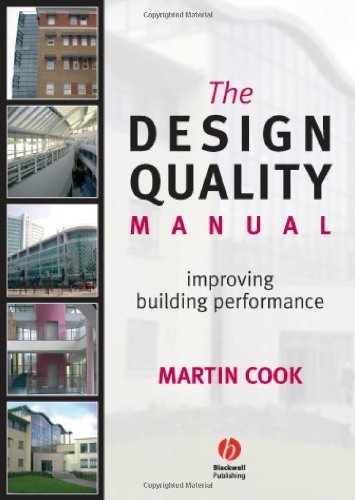Design Quality
Assessing the Quality of
the Design
Every client should regard himself as a
‘design champion’ and that means keeping a focus on quality throughout. In the early
stages of the project, only the client can make the right decisions. The following four main sections
represent the four main areas of quality that contribute to the overall quality
of design:
1.
Impact
This
section refers to the building’s ability to create a sense of place and to have
a positive effect on the local community and environment. It also covers the
wider effect the design may have on the arts of building and architecture.
- Character and innovation
- Form and materials
- Internal environment
- Urban and social integration
2.
Build Quality
This
section relates to the engineering performance of a building, which includes
structural stability and the integration, safety and robustness of the systems,
finishes and fittings.
- Performance
- Engineering systems
- Construction
3.
Functionality
This
section is concerned with the arrangement, quality and interrelationship of
spaces and how the building is designed to be useful to all.
- Use
- Access
- Space
4.
Value
A well
designed building has a greater value to all involved. It is likely to be
easier to gain local acceptance and get planning permission, it will provide
better service to the users, and it should be cheaper to run. A well designed
building is one that is suitable for its intended use, built to last, safe and
sustainable to build and occupy, contributes to its context and looks good. It
should convey its function and role, be easy to understand and a delight to
use, visit and pass by. If it fulfills all these criteria it will be a good
investment. Sound financial management and an aspiration for excellent quality
go hand in hand. The real costs and benefits of a building are in its
occupation and you should be striving from the outset for a building that will maximize
whole life benefits. Extra resources spent on design or construction to achieve
high quality can pay for themselves many times over during the life of the
building.


No comments:
Post a Comment